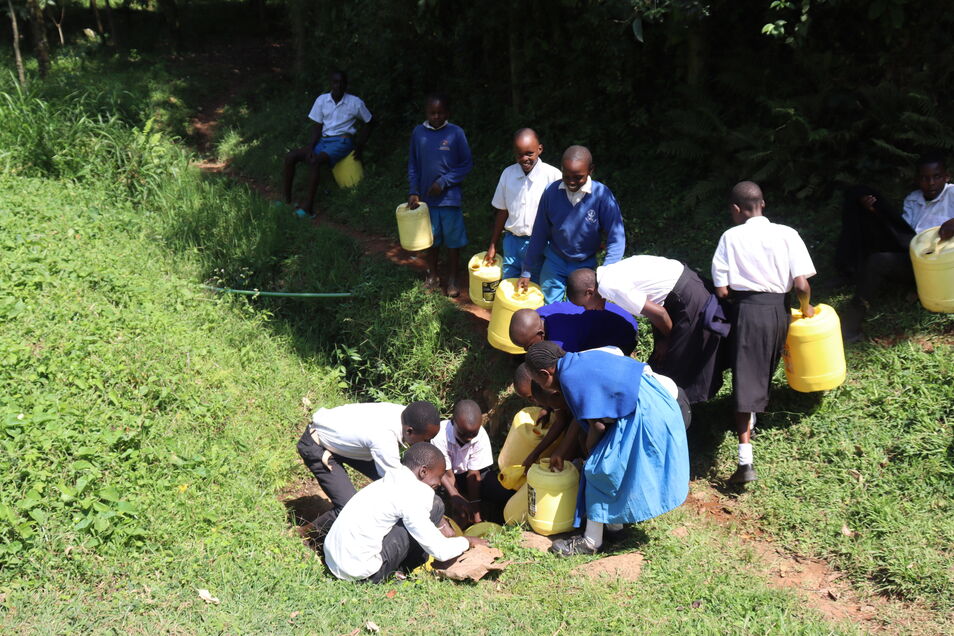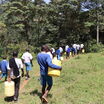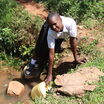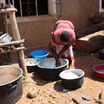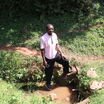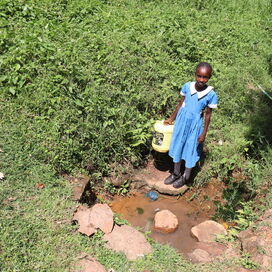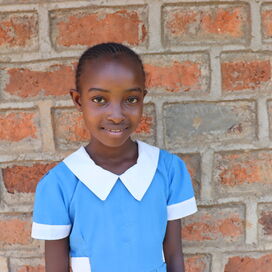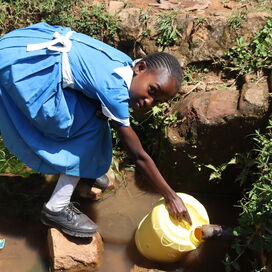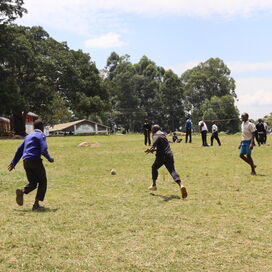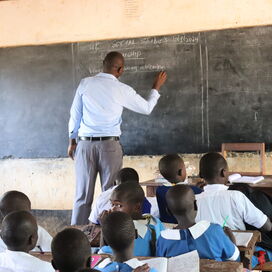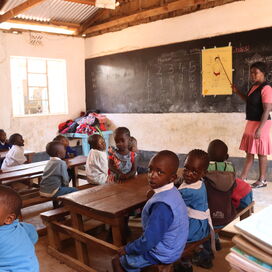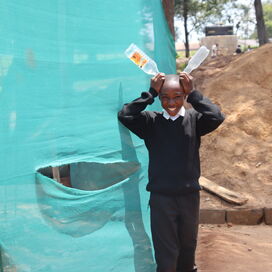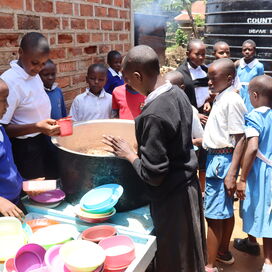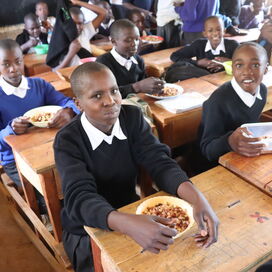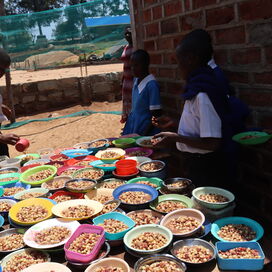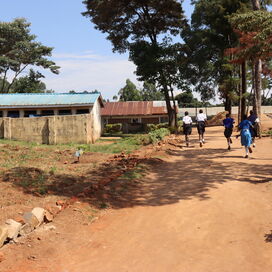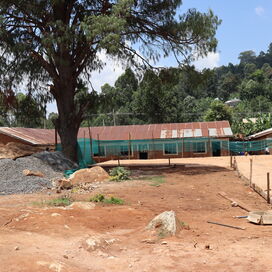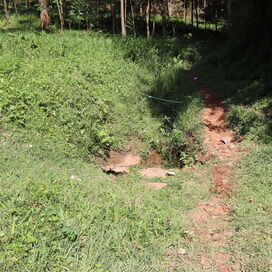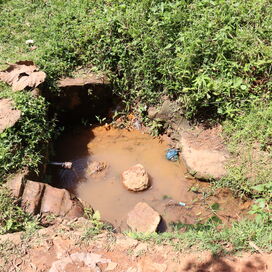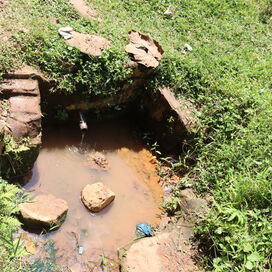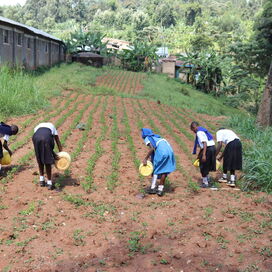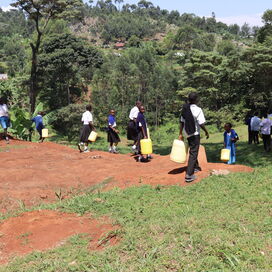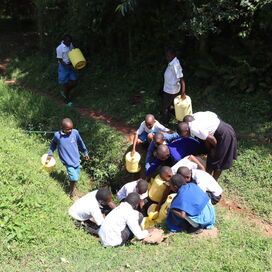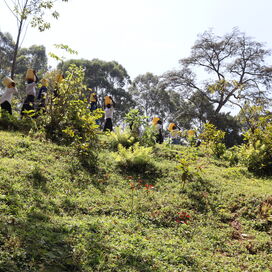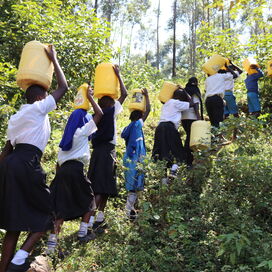Friends Munzatsi Primary School
Eleven-year-old Tracy is a determined young woman. She must be as she tries to survive her school's water crisis.
"Our school has a population of over 400 pupils depending on two unreliable water points; this leads to long queues as each student waits for their turn to collect water. Distance to the alternative water source, the partially protected spring, is a bit long, which contributes to the longer time required to fetch water. It also takes more time to fill up containers since the water from the discharge pipe is low," Tracy shared.
As Tracy described, due to the size of their school, they experience heavy overcrowding, which makes an already time-consuming process even longer.
"Fetching water takes up my time that would otherwise be spent on learning and revision. It also causes exhaustion and [a] lack of concentration in class after carrying heavy containers of water. This impacts my ability to prepare for exams, which in turn affects my class performance," Tracy continued.
Water is a vital resource, often taken for granted when access is easy. But Tracy feels the weight of the water crisis on her young shoulders.
Many students feel that way at the Friends Munzatsi Primary School. Emotions run high as needs go unmet, causing quarrels between students and sometimes community members.
Installing a well on campus will begin to alleviate the hardships that Tracy faces. With a reliable well that is easily accessible, she won't have to wonder where she will get water every day. No more trekking uphill and far away. Tracy will gain back the time she needs to focus on her education, her childhood, and her goals. That is crucial because Tracy has big plans.
Our technical experts worked with the local community to identify the most effective solution to their water crisis. They decided to drill a borehole well, construct a platform for the well, and attach a hand pump.
Well
Abundant water often lies just beneath our feet. Aquifers—natural underground rivers—flow through layers of sediment and rock, offering a constant supply of safe water. A borehole well is drilled deep into the earth to access this naturally filtered and protected water. We penetrate meters, sometimes even hundreds of meters, of soil, silt, rock, and more to reach the water underground. Once found, we construct a platform for the well and attach a hand pump. The community gains a safe, enclosed water source capable of providing approximately five gallons of water per minute.
Alongside each water source, we install two gravity-fed handwashing stations, enabling everyone at the school to wash their hands. Handwashing is crucial for preventing water-related illnesses within the school and community. Student “health clubs” maintain the stations, fill them with water, and supply them with soap, which we often teach them how to make.
We will construct two Ventilated Improved Pit (VIP) latrine blocks designed to prevent fecal disease transmission. Each latrine features a cement floor, making it easy to use and clean regularly. Three stalls will serve the girls, and three will serve the boys.
Hygiene and sanitation training are integral to our water projects. Training is tailored to each school's specific needs and includes key topics such as proper water handling, improved hygiene practices, disease transmission prevention, and care of the new water point.
H2O for Life partners with experienced NGO organizations around the world that build and support clean water, sanitation, and hygiene education projects in schools. These NGO partners cover half the total cost of every project funded through H2O for Life.
When students raise money for a project, 90% of the funds go directly to the project, and 10% supports the work that makes the project possible. This includes choosing trusted partners, managing funds responsibly, checking on projects, and reporting back so students can see the impact of their work.
This helps ensure every project is done well, stays sustainable, and truly changes lives.
In rare situations, we reserve the right to reallocate funds to alternate project(s).
Questions? Ask us at 651-756-7577 or info@h2oforlifeschools.org.
